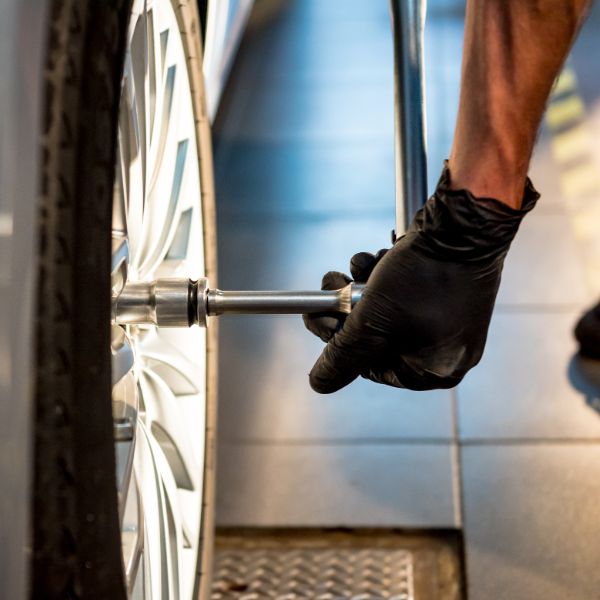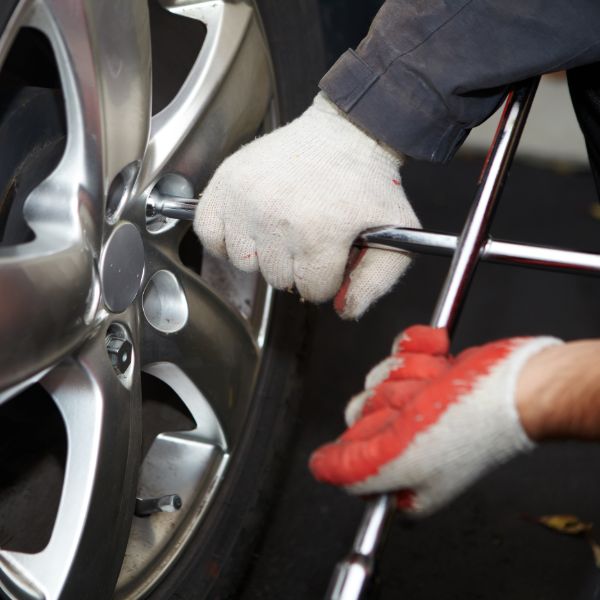Post Fitting
Re-torque
Following the fitment of your new tyres, we advise that you regularly check the position of your wheel nuts for any movement or loosening.
Whilst we ensure that all wheels are safely re-fitted to the vehicle manufacturer’s torque settings, threaded wheel nuts can potentially loosen as a result of relaxation in the clamping force (known as ‘settlement’).
As a result, we recommend that you regularly perform checks to determine if wheel nuts have become loose. An initial check following a wheel refit should take place after the vehicle has been driven between 25 and 100 miles. Look out for the following when checking for loosened wheel nuts: rust or bright metal around the wheel nut, cracked or distorted wheel rims, broken or loose fixings, the position of wheel nut indicator devices (if you have them), which can indicate if wheel nuts have moved.
If you’re concerned that your wheel nuts have loosened in any way then we highly recommend that you have them re-tightened (this process is known as a re-torque). These checks should be carried out alongside other essential checks such as tyre pressure and tread depth. Check your vehicle’s manual for further advice on checking wheels and tyres.
Vibration
The vibration of your tyres while driving can be caused by a number of factors, including: a balance weight coming adrift, a worn suspension component, a faulty tyre. In order to establish the cause of the vibration as quickly as possible, we can reassess the vehicle in the garage.


